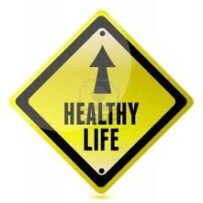Empowering Patients | Healing Health Care

The current approach to dis-ease management is at best “incomplete” and at worst “flawed”.
As part of a diagnosis a patient hears things like “there’s no known cure”, “we don’t know what causes this”, and “you’ll have this for the rest of your life”. The patient is then offered a prescription for a drug cocktail to help mask the symptoms to improve their quality of life.
Yet we’re ignoring the cases of people who have improved or recovered from these dis-eases. People who have healed from cancer, thyroid conditions, and other autoimmune conditions are not really understood and are minimally studied.
What if some of the statements we hear are not quite true? What if we had an idea (a really good idea) of what many of the contributing factors for dis-ease are? While there may or may not be a definitive cure, what if we could point to people who had healed from the condition? What if you didn’t really have to have the condition for the rest of your life?
I believe that the system is changing. Many patients have realized that simply masking symptoms isn’t the answer. And there are more and more studies and documented recoveries that are being studied and shared. I also believe that the patient (I suggest the “empowered patient”) is the key to this systemic change. When patients no longer accept dour outlooks and begin their journeys to understand and manage the root causes of dis-ease, our system will be changed forever. My belief is that the act of empowering the patient to understand and deal with root causes of conditions is not only good for the patient, it will have a “side effect” of healing the healthcare system.
I encourage you to check out my web site and the works of my colleagues like Dr. Lissa Rankin, Aviva Romm, Andrea Beaman, and Dr. Kelly Turner, to name a few.
“In order to change an existing paradigm you do not struggle to try and change the existing and problematic model. You create a new model and make the old one obsolete.” ~ R. Buckminster Fuller







Great insight! We agree!
🙂